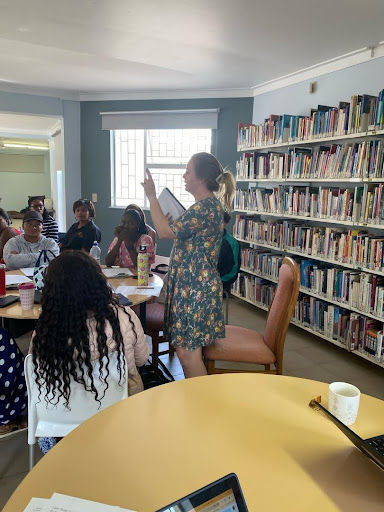Educating for sustainability
- Windhoek International School
- Feb 16, 2024
- 2 min read

Last week I had the opportunity to do a preparatory accreditation visit for the New England Association for Schools and Colleges (NEASC) at the Green School in South Africa. I was fascinated by the way Green School plans its whole approach to education on sustainability. Their buildings, their garden, their teaching and learning and their kitchen are all designed and managed sustainably. The school operates in such a way that no waste is created that has to land up in the landfill. For me that was another reminder of the responsibility we have, to educate our children to live sustainably, but most of all, to lead by example - we as adults should drive this process.
At WIS, we are not yet mindful of our environmental impact on a community level. We still use loads of disposable items - what we bring to school, what we use as containers when we sell food at the tuck shop or bake sales and what we use when we print and photocopy 100s of pages for our teaching.
This visit has again brought closer to me the need for us to be more intentional with the way we treat our environment and respect it in a way that is much more sustainable.
The Green Ecology Team at WIS has proposed an initiative to reduce plastic and waste at WIS. This is an initiative that has to be supported by the whole community and can not be negotiable anymore. The team suggests, and this is strongly supported by the leadership and maintenance teams and everyone involved in looking after our sustainability here at school, that we take a determined and active approach to this initiative and ensure that we become more environmentally aware and proactive. The committee suggests the following:
|

We won’t be able to make a full turnaround in a space of a month. We do need to, however, be more intentional about the way we think about our impact on the environment.
At the same time, I have also realised again during this visit, how much there still is to do about living harmoniously as a community. What can we do to understand each other better, to respect each others’ differences more and how can we be better as educators, to raise children that honour the values we treasure and believe in at WIS and most certainly in most of our homes - respect, tolerance, honesty, diversity and inclusivity.
In the past week, we have grappled with some situations among our students that, at times, make us feel helpless and at a loss of solutions.

My question coming from this past week’s experience is very strong:
As a community, how can we be better at supporting each other, inspiring each other and giving each other the necessary space and respect that gives each individual the opportunity to be their best self? There is still a journey ahead of us, but we should start with actions now and be mindful and determined to make a difference - in our small community now and for the greater good in the future.
This is a call for more deliberate support and action from all of us to help us be a stronger and more bonded community that can embrace the challenges we face as a community.
Maggie Reiff
Secondary Principal















Comments